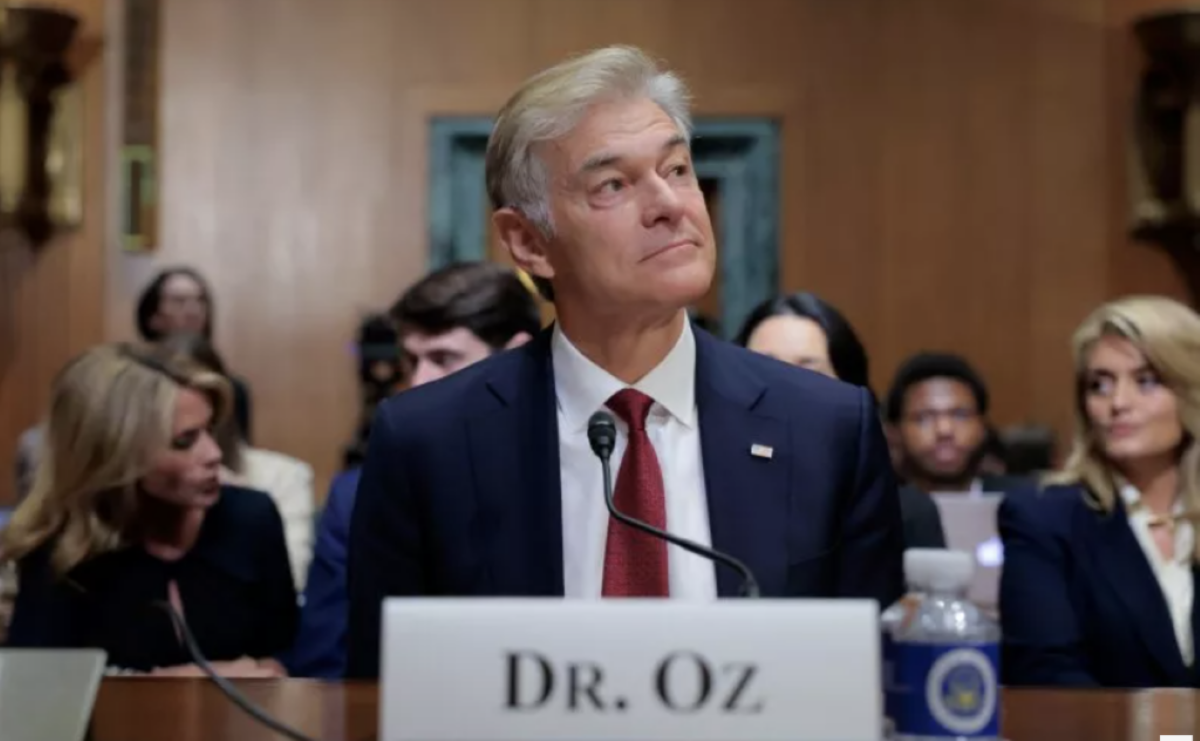Dr. Mehmet Oz, in his appearance before the Senate Committee on Finance on Friday, vowed to reduce the bureaucratic burden of the Centres for Medicare and Medicaid Services (CMS) if confirmed as the agency’s head. He also acknowledged challenges within Medicare Advantage (MA) plans, criticising the preauthorisation process and overbilling practices by insurers.
In a shift from his previous enthusiastic endorsement of Medicare Advantage plans, Oz agreed with Senators that there should be stronger measures against “upcoding” – a practice where more severe diagnoses are reported than necessary to secure higher reimbursement rates. He also expressed the need to reform the preauthorisation process, suggesting that a streamlined and efficient system could be implemented through technological advancements that were not available a few years ago.
Oz highlighted that the CMS allocates about 12% of its budget to bureaucratic processes, much of which is absorbed by intermediaries, and argued that with modern technology, these processes could be automated, reducing the need for middlemen and lowering costs. He also stressed that Medicaid must ensure fair payments to doctors while guaranteeing access for patients. To address Medicaid’s ballooning budget, Oz suggested cutting the cost of care through operational efficiencies.
In a discussion with Senator Ron Wyden (D-Ore.), Oz expressed strong support for Medicaid, describing it as a vital program, and showed empathy for Medicaid patients who are denied care. As the head of CMS, Oz would be responsible for overseeing health insurance programmes covering over 150 million Americans, including those under Medicare, Medicaid, and the Affordable Care Act. In the fiscal year 2024, CMS’s spending amounted to approximately $1.516 trillion, representing 22% of all federal spending.
The tone of the hearing differed greatly from the confirmation hearing for Robert F. Kennedy’s nomination to lead the Department of Health and Human Services (HHS) in January, with moments of levity throughout. Oz, who has met with lawmakers over the past month, is widely expected to be confirmed.
Oz also criticised the Medicare Advantage sector, pointing to issues with the sale of these plans and the practice of brokers engaging in “policy churning” to earn commissions. He suggested the introduction of multi-year plans for seniors to reduce broker costs and proposed exploring whether some funds used by Medicare Advantage plans to attract enrollees should be reimbursed to prevent the programme from becoming more expensive than traditional Medicare.
Medicare Advantage
Currently, more than 66 million Americans are enrolled in Medicare, with roughly half opting for traditional Medicare, where the federal government directly provides health coverage. The other half are enrolled in Medicare Advantage, where private, for-profit insurers administer the health benefits, with the federal government covering the costs.
Senator Elizabeth Warren (D-Mass.) criticised Medicare Advantage, pointing out that insurers receive a fixed payment per patient, and the more diagnoses and codes they report, the higher the reimbursement. While this structure is designed to cover sicker patients, insurers often profit by reporting unnecessary diagnoses, even if no actual care is provided. She cited a report in the Wall Street Journal, where 66,000 Medicare Advantage patients were wrongly diagnosed with diabetic cataracts, despite already undergoing cataract surgery, a procedure that can only occur once. This fraudulent diagnosis resulted in insurers receiving an extra $178 million in taxpayer funds.
Warren estimated that Medicare Advantage overpayments total $83 billion, contrasting this with proposed cuts to healthcare in the House budget framework, which suggests $88 billion in annual reductions to health care, Medicaid, and services for seniors and individuals with disabilities. She posed a direct question: “If you had to choose between cutting waste, fraud, and abuse in Medicare Advantage or cutting funding for Medicaid, which would it be?”
Oz responded that improving the healthcare of Americans, including addressing issues like waste and fraud in Medicare Advantage, was critical. He emphasised that these efforts were essential for rational healthcare reform.
Telehealth and Staffing Issues in Nursing Homes
Senator Wyden raised concerns about the federal staffing mandate for nurses in nursing homes, which requires the presence of a registered nurse 24/7. Oz acknowledged the complexity of the issue and the shortage of nurses in nursing homes. He suggested that technology, including telemedicine, could provide a solution by offering quality care without the need for a nurse to be physically present at all times. He did not comment directly on the federal staffing mandate, but he emphasised the importance of having qualified staff in nursing homes to provide quality care.
Oz’s comments came as Senator Wyden expressed his opposition to any efforts to reduce the number of nurses in nursing homes, stressing the need for adequate staffing to ensure proper care.
Key Statistics and Insights:
- CMS Budget: In fiscal year 2024, CMS spent $1.516 trillion, which makes up 22% of total federal spending.
- Medicare Advantage Overpayments: Overpayments in Medicare Advantage plans are estimated to total $83 billion, partly due to improper coding and diagnoses.
- Medicare Advantage Enrollment: More than 66 million Americans are enrolled in Medicare, with about half participating in Medicare Advantage.
- Nursing Home Staffing: A federal mandate requires a registered nurse to be available in nursing homes 24/7, amid ongoing concerns about staffing shortages.
Related Information:
The debate over Medicare Advantage’s costs has intensified in recent years, with growing concerns over the programme’s sustainability and its impact on taxpayers. Critics argue that the model may be less efficient than traditional Medicare, raising questions about the long-term financial viability of the programme. Meanwhile, the staffing crisis in nursing homes has been exacerbated by a shortage of qualified healthcare professionals, highlighting the need for innovative solutions to ensure adequate care for elderly residents.
